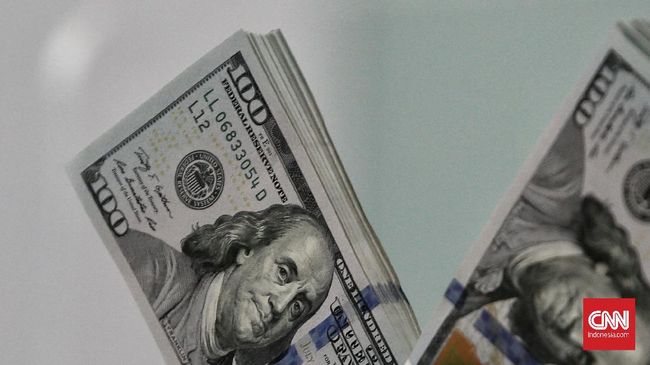Jakarta, CNN Indonesia –
Bank Indonesia (WITH A) and the central bank China, The People’s Bank of China (PBC) recently agreed to conduct bilateral trade transactions and investation live (Local Currency Settlement/LCS) using the local currencies of both countries, the yuan and the rupiah. The agreement was signed by PBC Governor Yi Gang and BI Governor Perry Warjiyo on Wednesday (30/9).
“This includes, among others, the use of direct exchange rate quotes and interbank trading for the yuan and rupiah,” said BI in an official statement, quoted on Friday (2/10).
With this policy, transactions between the two countries no longer use the US dollar, as was previously done. The US dollar itself is usually used in transactions between countries because it is the official currency in international trade so far.
The national central bank believes this agreement will provide benefits in the form of strengthening the exchange of information and regular discussions, increasing bilateral financial cooperation, and increasing financial transactions in the local currency of each country.
However, the agreement to transact without the US dollar is actually not the first time Indonesia has obtained from China. Before the Bamboo Curtain Country, there were several countries that had left the US dollar to transact with Indonesia.
Previously, Thailand and Malaysia had already agreed not to use US dollars for trade and investment transactions with Indonesia. Transaction payments are changed from US dollars to rupiah, Thai baht and Malaysian ringgit.
The agreement took place since the end of 2017 or when BI was led by Agus Martowardojo. The agreement was made with the Governor of Bank of Thailand Veerathai Santiprabhob and the Governor of Bank Negara Malaysia Muhammad bin Ibrahim at that time.
“We also see that using the local currency will make it easier because it is converted directly to the exchange rates of the two countries, so there is no need to convert it to a third country currency (US dollar),” said Agus at that time.
From this convenience, he is sure that trade and investment cooperation can stretch in the future. In addition, transactions in the local currency of each country can create diversification of trade products and trade value.
For the financial system, fluctuations in the exchange rates of each currency can be more secure and stable. Finally, it can have an impact on the economic growth of each country.
Each central bank has appointed a bank in their country to carry out this agreement. Several banks involved in Indonesia, namely PT Bank Republik Indonesia (Persero) Tbk or BRI, PT Bank Mandiri (Persero) Tbk, PT Bank Negara Indonesia (Persero) Tbk or BNI, PT Bank Central Asia Tbk or BCA, PT Bank CIMB Niaga Tbk, and PT Bank Maybank Indonesia Tbk.
While from Thailand, there are Bangkok Bank PCL, Bank of Ayudhya PCL, Kasikornbank PCL, Krungthai Bank PCL, Siam Commercial Bank PCL, CIMB Thai PCL, and UOB Thai PCL. eko
While from Malaysia, there are CIMB Bank Berhad, Malayan Banking Berhad, Hong Leong Bank Berhad, Malayan Banking Berhad, Public Bank Berhad, RHB Bank Berhad, Bank of Tokyo-Mitsubishi UFJ Malaysia Berhad, and United Overseas Bank (UOB) Berhad.
After Thailand and Malaysia, Indonesia has also left the US dollar for transactions with Japan. The agreement was obtained through an agreement signed between BI and the Japanese Ministry of Finance at the end of 2019.
In Indonesia, there are seven banks appointed to carry out transactions with local currencies. They are MUFG Bank Ltd Jakarta branch, PT Bank BTPN, Tbk, PT Bank Mizuho Indonesia, BCA, Bank Mandiri, BRI, and BNI.
Meanwhile, banks in Japan appointed by the Japanese Ministry of Finance are Mizuho Bank Ltd, MUFG Bank Ltd, BNI Tokyo branch, Resona Bank Ltd, and Sumitomo Mitsui Banking Corporation.
(uli / agt)
– .

/data/photo/2020/02/13/5e454f7d00813.jpg)
